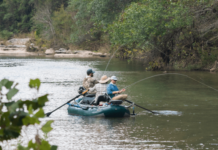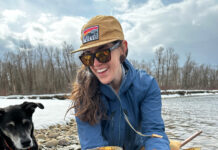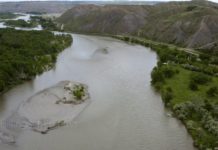Editor’s Note: This essay is part of the CNN Opinion series “America’s Future Starts Now,” in which people share how they have been affected by the biggest issues facing the nation and experts offer their proposed solutions. Katherine Keel is a former Division 1 swimmer who moved to Colorado shortly after graduating from the University of North Carolina with a journalism degree. She is currently training to be a paramedic. The views expressed in this commentary are hers. View more opinion at CNN.
CNN
—
The first time I was evacuated was the summer of 2018. I crammed the last of my stuff into the back of the truck and looked across the street. Flames crested the top of the hill, licking the sky and threatening to descend on the community below. Strong gusts of wind rattled my blinds, and cars pulled over on the side of the road to watch the nightmarish scene. It was the 4th of July, but that year no one was celebrating.
Climate change has played a significant role in my daily life since moving to the mountain town of Basalt, Colorado, five years ago. Major roads close regularly due to flooding and mudslides, cutting off our town from the resources of the city. Most summers, smoke inhalation is an inevitable part of recreating outdoors, and it’s become commonplace to check the air quality index daily to see if it’s safe.
I’ve taken up fly fishing as a hobby, and Colorado Parks and Wildlife advises anglers to refrain from fishing when the water temperature in our rivers hits 67 degrees – as it places high stress on the fish. Tourism is down when snow totals are low in the winter, which affects a major source of income for my rural community.
And then there are the wildfires.
I remember my eyes were glued to the rearview mirror as I drove away from my house on July 4, 2018. Eerie orange flames seemed to grow taller and taller on the hillside behind me. The smoke hung heavy in the air the next morning, stinging my eyes and making it hard to breathe – even with a mask – as I walked into the grocery store. There was a somber tone in the valley, and a very palpable fear in everyone’s eyes.
While my home was spared, there have been wildfires in the area nearly every summer since 2018 that remind me just how treacherous climate change can be.
We’ve all heard scientists and experts warn of the dangers of a warming world. From as far back as I can remember, I’ve been taught and encouraged to recycle, pick up trash and conserve water. From the Earth Day parades in elementary school, to the “reuse, reduce, recycle” trends of recent years, I’ve always been a big proponent of protecting the planet. But it didn’t really hit home until more recently.
I lived in a city for most of my life and, for many years, I felt largely immune to climate change. While I knew it was happening, I was protected from the immediate impacts. I’d turn on the TV and see climate disasters happening all over the world, and yet my daily life was largely uninterrupted.
That changed pretty soon after I moved to the mountains and had to evacuate from the Lake Christine Fire. While the fire was started by incendiary ammunition, my town, like much of the state, was experiencing severe drought conditions that propelled the fire across 12,000 acres with dried grass, brush and trees as kindling.
As a community, we rallied. We supported the firefighters and first responders day in and day out, from making sandwiches to providing housing and everything in between. I’d only lived in the Roaring Fork Valley for a year but felt deeply connected to my community in a way that was surprising. Tragedy will create bonds, regardless of background, ethnicity or political affiliation. The question is how much more we can take before we speak up, take action and demand more from our elected officials.
And it’s not just me, or my small town in Colorado. Extreme weather events are becoming more commonplace in every corner of the globe. This summer, an intense heat wave in Europe set record high temperatures, and fires broke out in the UK, France, Spain, Italy and Greece. Ice shelves in Antarctica are crumbling faster than they can be replaced, and losses are double what was initially estimated by scientists in 1997.
Hurricane Fiona ravaged Puerto Rico before it made landfall in Canada as a severe tropical storm. Historic floods in Pakistan affected 33 million people and left a third of the country underwater. Closer to home, the Marshall Fire in Boulder was the most destructive in Colorado history in terms of structures lost.
And these are just some events from this past year.
Moving to a small town has opened my eyes to the dramatic effects of a changing world. And there are lasting reminders – more than four years later, the burn scar from the Lake Christine Fire is still visible on the landscape whenever I drive down Highway 82.
Climate change has an economic impact as well. In the 2017-2018 season, snow totals were so low that our mountains couldn’t fully open all of the ski runs, and many employees who worked in hospitality were forced to take a two week “mandatory vacation.”
Climate change has become an undeniable fact of life in this area, and our safety, livelihoods and wellbeing are at stake.
Unfortunately, if we continue the way we’re headed … it’s just the beginning.
Credit: Source link































